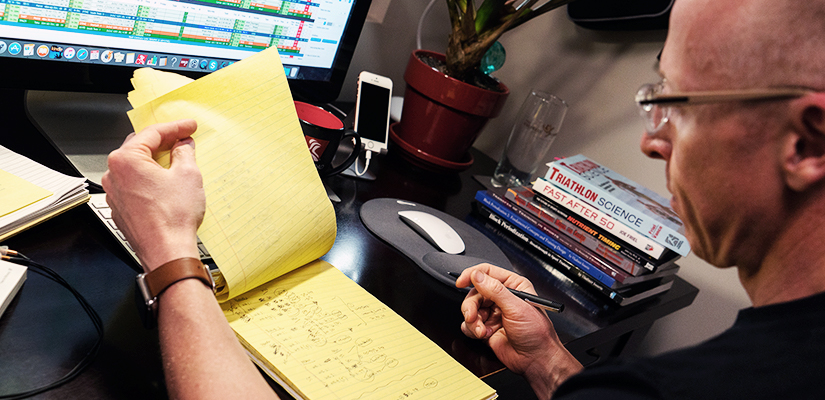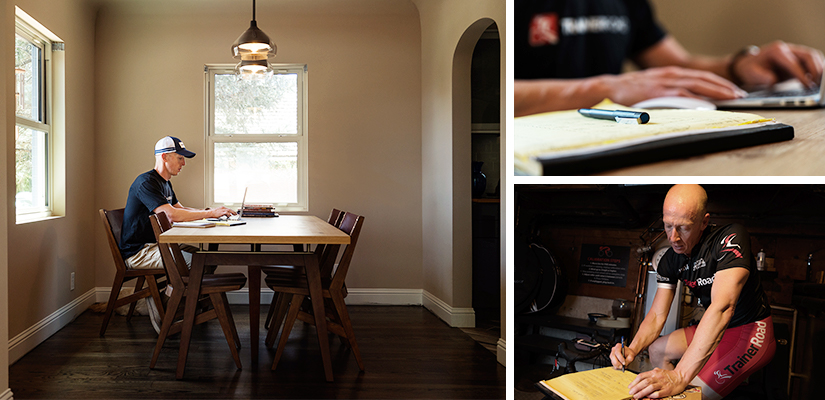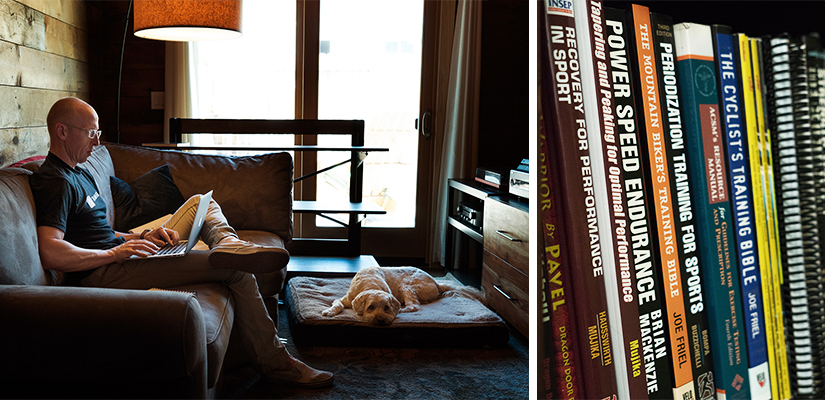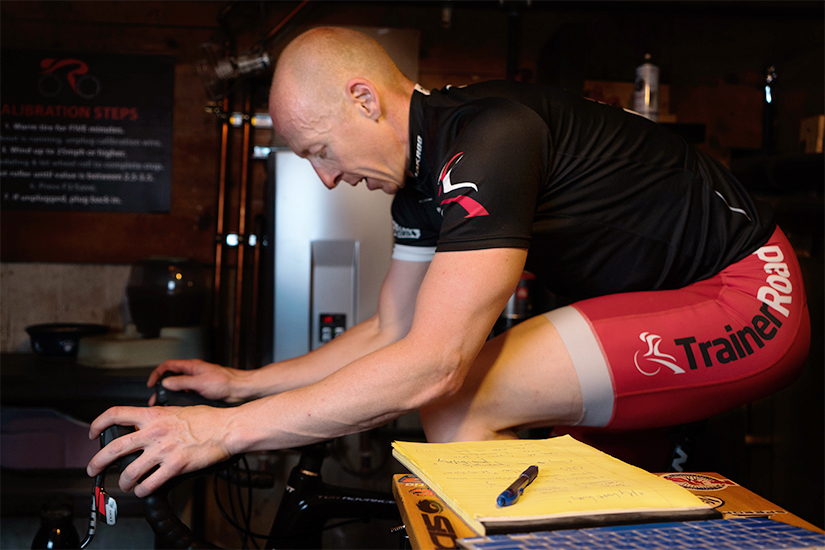Core Training Principles That Make You a Faster Cyclist

5:30 a.m. isn’t a good time to wake up — it’s a great time to be at work. That’s how our Head Coach Chad Timmerman sees it. By the time most people come into the office for their first cup of coffee, Coach Chad is several pages deep into a science-dense training book (a routine he sticks to religiously each morning) and well into laying the groundwork for a new structured training plan.
This is what it takes when the success of thousands of athletes effectively falls on your shoulders. It may sound like a lot of pressure — and it is — but Chad doesn’t notice. He’s been doing this for over a decade.
From his 25+ years of racing and over 10 years of coaching experience, Coach Chad’s developed a few fundamental training principles. These core principles are the driving forces behind the workouts and training plans you use on TrainerRoad. To give you a peek inside the mastermind that is Coach Chad, here are a few of his most highly held beliefs.
Training Stress Should Be Progressive
In cycling, common sense can inform roughly 75% of your training decisions. You eat well, you train hard and you look to the greater cycling community for widely accepted training advice. Effectively structured periodized training requires more than common sense. It takes that other 25% — that’s what sets you apart from the rest of the peloton. That 25% is research. It’s the homework and due diligence you put in when you want to be a winner to base your training off proven, scientific research. There’s no easy way around it. If you want to get your edge, you have to put the time in and do your homework.

From his 20+ years of cycling and coaching experience, Coach Chad knows there’s no substitute for research. On average, Coach Chad spends 10-15 hours/week just reading alone. At home, in the office — wherever he goes, you can catch him with a training book cracked researching how to progress your training in the most effective possible way.
His extensive time spent studying the sport of cycling has gifted Chad with a keen, discerning intuition to distinguish fad from fact. What does this mean for TrainerRoad athletes? When you’re following a structured training plan, you know you’re following a plan founded in hours of scientifically supported research.
High Quality Trumps High Quantity
Most of the cyclists Chad has coached one-on-one in the past were not pros, they were just like you. They had families, jobs and countless other commitments that limited the amount of time they had to train. For these everyday cyclists, they viewed time, above all, as their greatest limiter. Chad learned quickly that it doesn’t have to be.

Chad’s experience training combined with his research have taught him that you don’t need an exhausting number of hours each week to train. What’s more, your job, family or any other responsibilities you have do not decide if you can be a strong cyclist or not — how you train does. High-quality interval workouts gives you the same amount of — if not more — fitness gains as long hours of low-intensity work.
Training Doesn’t Have to Suck
In today’s world, there’s no place for coaches without cycling careers. As much as cycling is Chad’s career, it’s his passion first and foremost. He can read a million books on the subject, but without that inner desire to ride, Coach Chad wouldn’t be able to have the same impact on athletes as he does today. Yes, training smart and hard is important. But having fun is a big part of the equation, too.

It’s common to associate long hours on the bike and painful recovery with better training, but it’s not the only thing. At the end of the day, cyclists train hard to succeed at the sport they love. There’s no one who understands this more than Chad. He knows that without passion those long hours and sacrifices really aren’t worth much. So here’s our advice: Get more out of your training by reminding yourself why you love the sport and put an end to overthinking your training — that’s what Coach Chad’s here for.
Take a look at the complete list of Coach Chad’s guiding training principles.
For more answers to your cycling training questions, listen to our podcast Ask a Cycling Coach — the only podcast dedicated to making you a faster cyclist. New episodes are released weekly.